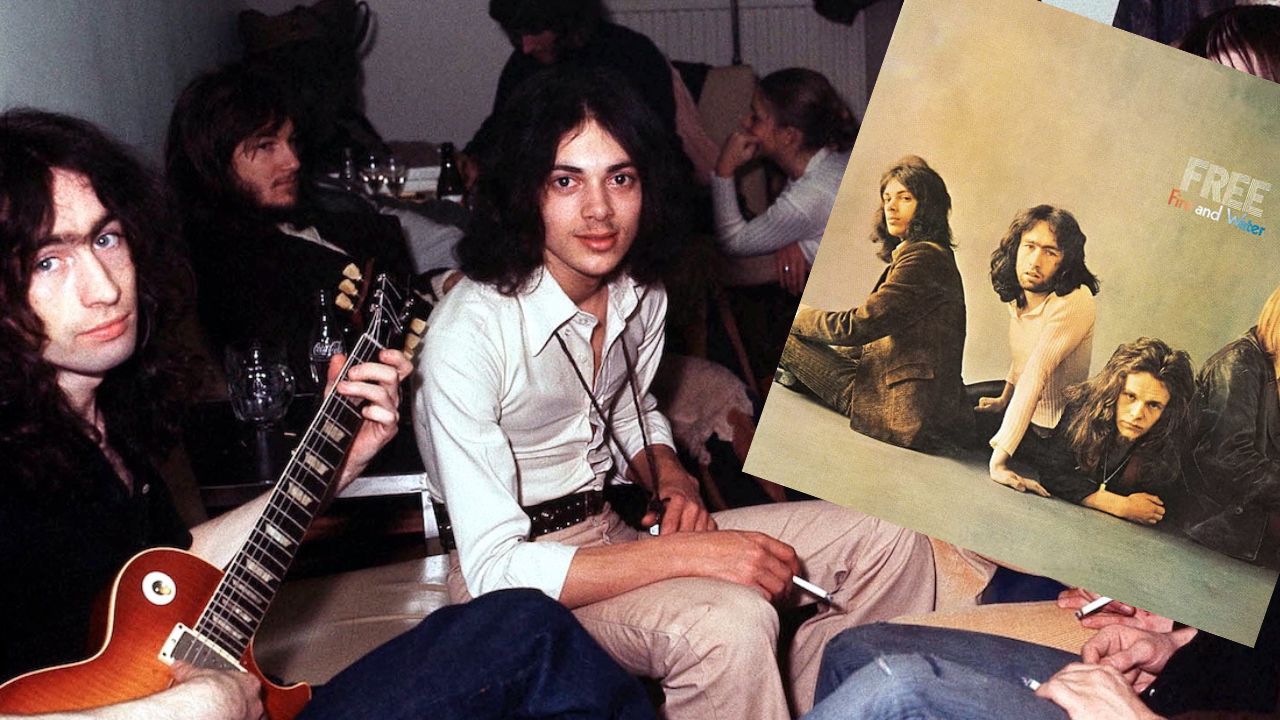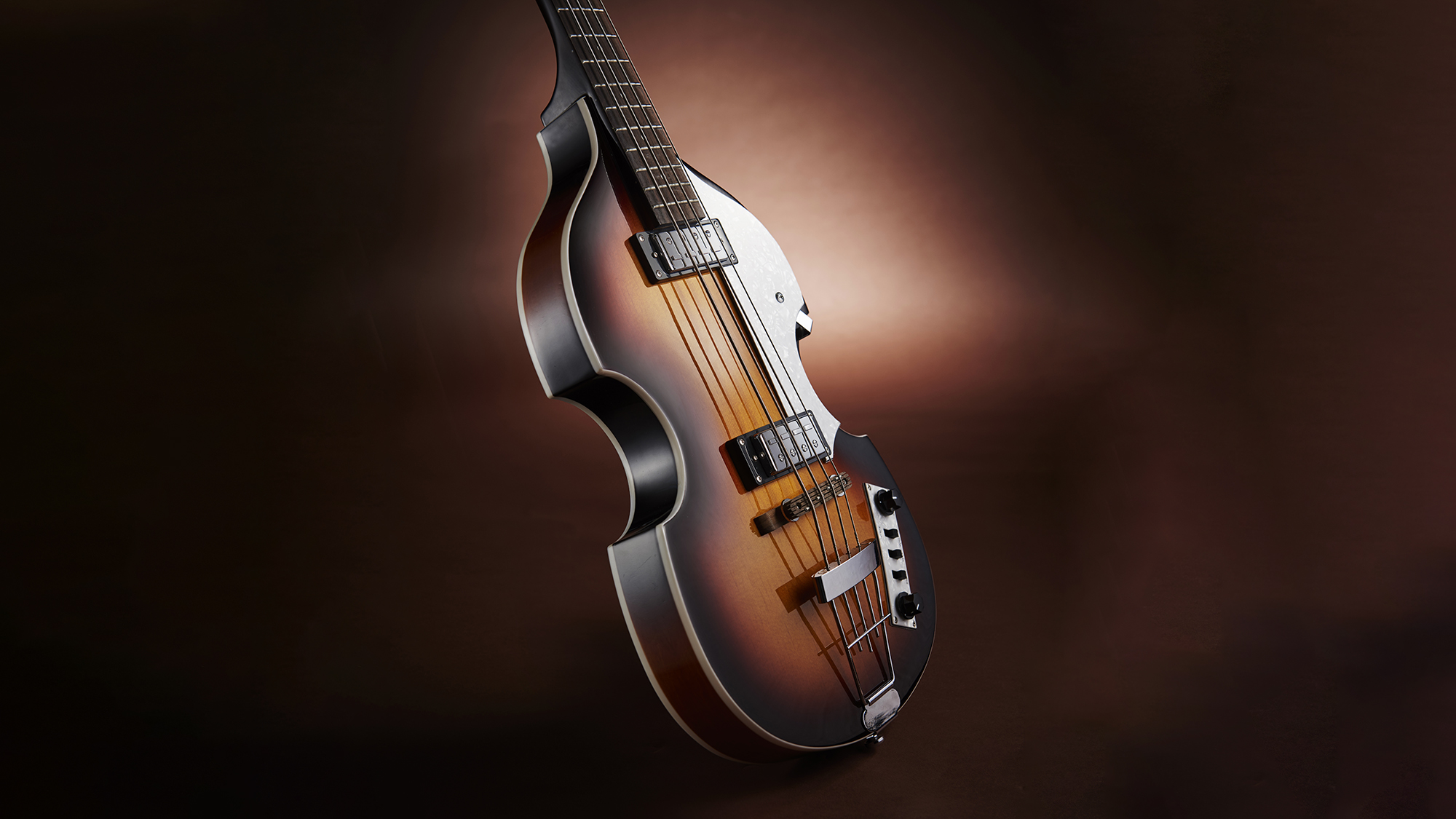Andy Fraser: “It was me trying to impersonate Pete Townshend, who was, to me, the all-time greatest chord king”
How Free’s worst ever gig inspired one of the most iconic bass solos in rock

Few bass players personify the spirit of 1970s classic rock more than Andy Fraser, who honed his phenomenal bass chops in John Mayall & the Bluesbreakers aged just 15. Something of a rock prodigy, Fraser was still only 17 when Free recorded the classic rock anthem All Right Now at Island’s Basing Street Studios in January of 1970. His distinctive bass guitar solo has since been noted as a marvel of do-it-yourself, call-and-response.
“I always felt that, pound for pound, Fraser had the most talent of the four of us,” said drummer Simon Kirke in the booklet of Molten Gold, a 1993 Free compilation. Kirke also spoke of how Fraser had come up with All Right Now moments after a disastrous college gig. "We left the stage to the sound of our own feet and we didn’t like that because the fans would normally be screaming for more. We decided we needed an up-tempo song to put that right.”
In a 2013 interview, Fraser remembered the show in more detail. “It was a terrible gig. It was a venue that could hold 2,000 people, but there were only about 30 people there. Usually it didn’t matter who was watching or whether they were getting into it… we’d just play for ourselves and have a good time, but this night, it just wasn’t happening… we absolutely sucked.”
To help lift his fellow bandmates, Fraser came up with what would later become the main chorus line. “I started singing, ‘All right now…come on baby, all right now.’ As if to say, ‘Hey, tomorrow’s another day’. Everyone else started tapping along and so I thought, we’re onto something here. The chorus took me about 10 minutes, and then Paul came up with the verses while he was waiting for a lift to a gig the next day. The guitar riff was me trying to impersonate Pete Townshend, who was, to me, the all-time greatest chord king”

Singer Paul Rodgers, who co-wrote the track with Fraser, later revealed how the arrangement came together, with Paul Kossof’s anthemic guitar chords locking in with the drums. “It was a very conscious decision to have no bass guitar in the verse,” he told Uncut magazine. “The chords were so strong and it’s very different to have just the guitar and the drums. Once you’ve set that pattern and you bring the bass back in, it really elevates it and it builds.”
A master of the understated bassline, Fraser’s counterpoint bass riff was delivered with maximum punch from his Gibson EB-3, which was his mainstay bass guitar for years. “I was immediately at home with the EB3," said Fraser when interviewed in 2013. "It’s small, as am I, so it was a perfect fit. It had extra frets up top, and I felt you could never have enough extra frets! And with the extra pickup, you could get a wide variety of tones. I really felt at one with that model.”
For Fraser, a string of solo albums and songwriting credits (notably Every Kinda People for the late Robert Palmer) followed the dissolution of Free in 1972. He moved to the USA and established a record company called McTrax International. He was HIV positive since the 1980s and was outspoken about his condition up until his death in March 2015.
“Andy was the most amazing musician,” said Simon Kirke, speaking to Classic Rock in the days following Fraser’s death. “As a bass player he was up there with Jack Bruce. But as Andy would say, if he was around now, he wasn’t just a bass player, he was a great all-round musician.”

Andy Fraser’s autobiography, All Right Now: Life, Death, and Life Again, is available now.
All the latest guitar news, interviews, lessons, reviews, deals and more, direct to your inbox!

Nick Wells was the Editor of Bass Guitar magazine from 2009 to 2011, before making strides into the world of Artist Relations with Sheldon Dingwall and Dingwall Guitars. He's also the producer of bass-centric documentaries, Walking the Changes and Beneath the Bassline, as well as Production Manager and Artist Liaison for ScottsBassLessons. In his free time, you'll find him jumping around his bedroom to Kool & The Gang while hammering the life out of his P-Bass.
